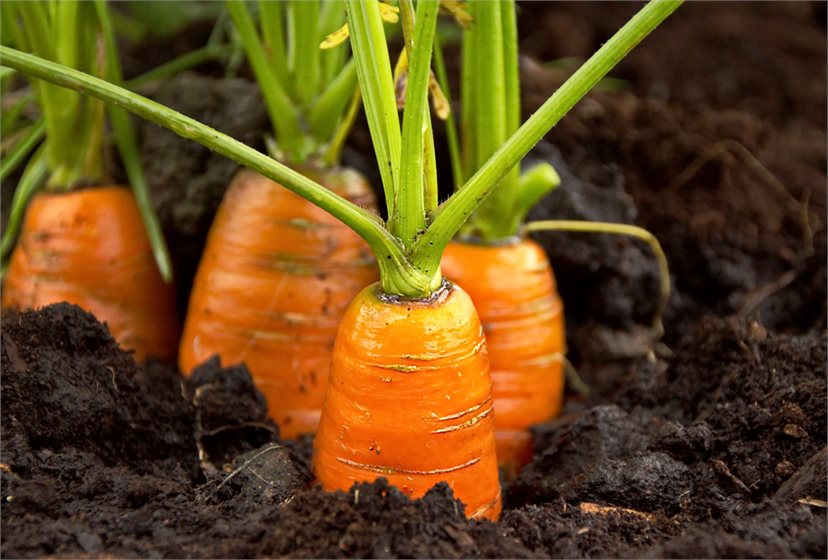Are carrots threatened by climate change?
8 Apr 2025

Media release | The humble carrot is a staple in many diets worldwide, but it may soon be under threat as the effects of climate change intensify, impacting seed production and global food security.
The vibrant root vegetable is often celebrated for its impressive health benefits, being rich in beta carotene which supports eye health, strengthens skin, teeth and bones and provides a variety of essential nutrients.
What is less well-known about carrots is that Aotearoa New Zealand plays a crucial role in the global carrot supply, producing over half of the world’s carrot seeds. Since carrots are grown from fresh seed each year, ensuring a steady supply of high-quality seed is essential for maintaining the global carrot crop. However, with climate change threatening this vital seed supply, the future of carrots is looking increasingly uncertain.
Researchers from Te Kunenga ki Pūrehuroa Massey University’s School of Agriculture and Environment conducted a study comprised of 18 years of data, funded by the Seed Industry Research Centre with AsureQuality support and led by Senior Research Officer Craig McGill. This research marks the first report modelling the impact of climate change on carrot seed production.
Carrot seeds grown in New Zealand primarily come from the Canterbury and Hawke’s Bay regions, which have experienced significant temperature increases since 2015. Asharp Godwin, who worked on this study as part of his PhD, explains how the temperature changes are affecting seed production.
“Carrot seeds are generated from the plant’s flowers above ground, which can grow up to a metre tall and bloom in the summer with bright white flowers. This plant growth is highly sensitive to climatic conditions, meaning any changes directly impact the yield.”
The study incorporated temperature and rainfall data from 2005 to 2022 that were modelled from 28 carrot seed-producing locations in Canterbury and Hawke’s Bay.
The research team modelled the impact of the atmospheric conditions and rainfall during key growth stages of carrot seed production, including the juvenile phase, vernalisation, floral development, flowering and seed development. Increased temperatures negatively affected carrot flowering, which in turn impacted seed development. Similarly, high rainfall during the reproductive and flowering phases proved detrimental to carrot seed yield.
The underlying highlight from the research is the vulnerability of carrot seed yield to climate change. Even a small rise in temperature can have significant impact on seed production, as elevated temperatures disrupt the plant’s ability to produce viable seeds. While the plants themselves may not die, the increased heat stress can reduce the availability of seeds for the production of carrots for consumption.
Asharp says this work is important in guiding the necessary policy decisions to mitigate further damage and potential food insecurity.
“It is my hope that this research will provide the data needed to develop climate-resilient carrot seed crops through biotechnological techniques, identify potential sites for carrot seed production and adapt precision agriculture practices in response to climate change.”
Asharp was supported in his PhD research by a Sri Lankan AHEAD Scholarship and AsureQuality Seed Technology Scholarship, alongside financial assistance from the School of Agriculture and Environment and the Helen E. Akers Postgraduate Scholarship. Two additional PhD candidates will join the project as it moves forward.










